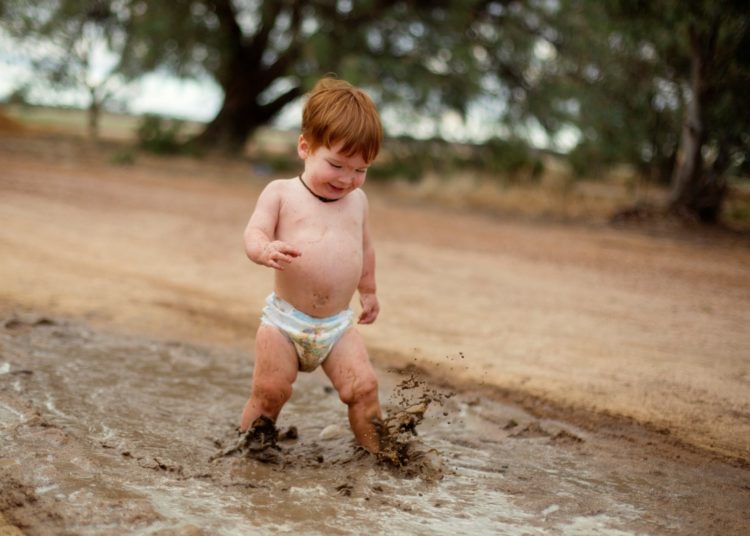Building Resilience, Essential Kids Blog, Maggie in the Media, Play & Nature Play, Posts for Parents
The dirty secret about raising kids: It’s child’s play

I am going to let you in on a little secret about raising children.
It’s a secret that I have discovered after parenting four little boys and watching them grow into strong, happy, successful men (well so far!).
It’s a secret I know to be true after working as a teacher for 17 years and then as a counsellor and speaker who travels around this wonderful country meeting all kinds of parents, children and teachers.
That secret is dirt, and lots of it.
When my boys were young, I used to have a trailer load of sand delivered to the yard and the kids would take themselves out to the pile for hours on end, playing and speaking in their secret boy code of grunts and noises.
The real secret of course is that children need play, and lots of it, but my point about dirt is that children don’t spend enough time outside anymore, having fun and getting dirty.
I think we all recognise that this is true as our lives become more fast-paced, but what are the consequences for our children’s development?
Modern living sees a heavy reliance on safe, supervised indoor activities often involving screens and with this comes the loss of autonomous adventuring among children.
Some might say this is a good thing because it minimises risk but risk can be a good thing and if someone else is always looking over your shoulder how will you ever learn to recognise a risk when they’re not around, let alone make a decision about what to do about it?
Play not only helps children learn about risk and decision-making, children learn nearly everything from play.
Vigorous, rough and tumble play helps children diffuse their excess emotional energy and calms them down (eventually).
Their brain actually needs play to develop properly as the cerebellum is stimulated by tumbling, rolling, balancing and spinning – all activities that a group of children playing in a natural environment or in a well-designed playground will do naturally. There is very little opportunity for these essential activities to occur when a child sits on a couch.
Play is also how children learn important social skills that strengthen their ability to cope with life. The same can be said for adolescents and young children: there is no substitute for real, human interactions when learning about relationships. Sesame Street and Gossip Girl just don’t cut the mustard.
Free play stimulates children’s curiosity, absorbed interest and sustained motivation to achieve goals. As an adult, these seeking qualities help us advance and without them we may find ourselves unable to leave an unloving relationship or getting stuck in a boring, soul-sucking job.
Indoor play is very valuable too: singing, verbal games, card games, board games and pick-up-sticks are valuable for developing reading skills, listening skills, counting ability, hand-eye coordination, memory and concentration.
Having said that, leaving your child to play with the peg basket while you hang out the washing can be just as valuable..
Children need opportunities for creative, exploratory play in stress-free environments, without restrictions on time or freedom.
What keeps me awake at night is that the Federal Government’s education revolution is stealing this away from our children, with the National Curriculum’s firm focus on formal learning for four-year-olds. That means instead of spending valuable time doing all of the things described above, these children are learning to read and write.
Reading and writing are important but many children aren’t ready to read at four, or seven for that matter. It is now more important than ever for parents to ensure their children are getting lots of physical, unstructured play in their day.
This is an enormous challenge for many families with both parents working and a litany of demands on their time already. However, if you have young children in your household I would urge you to make play a priority, and to build it in to your timetable.
When my boys were at school, I always made sure there was a ball in the boot of the car (along with snacks) and we would stop at a park for a kick of the footy before heading home to do homework and get caught up in the evening rush.
I noticed that on the days when I didn’t, chaos reigned when we got home. The other thing I noticed was that when I joined in the play for a little while I felt happier and got a good workout too. Maybe it’s not just the kids that need to get down and dirty.



